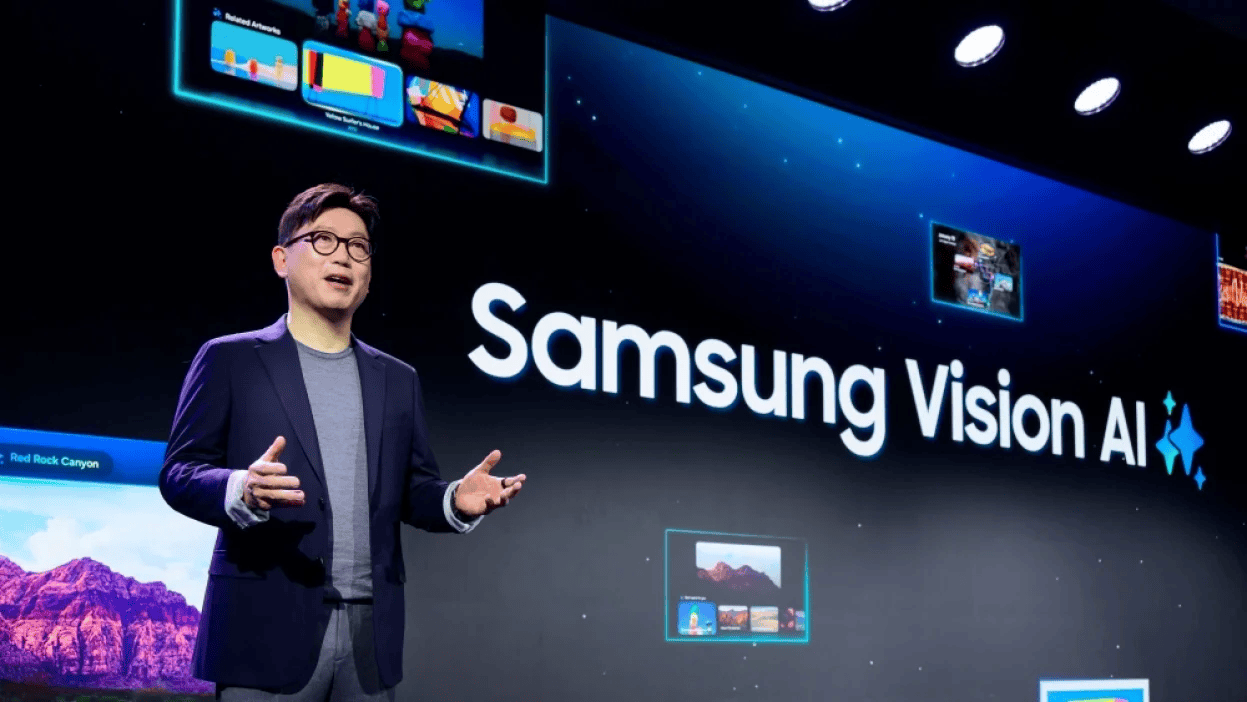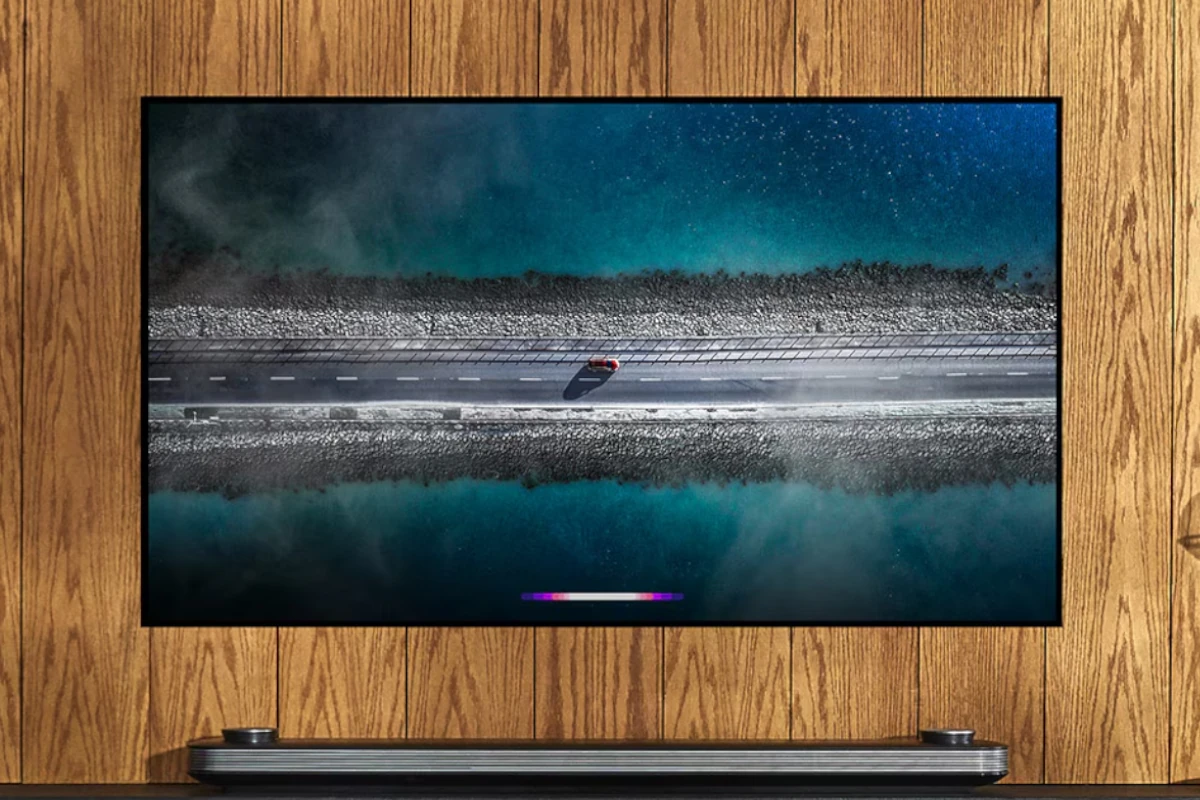Samsung and LG have recently announced their new smart TVs that will feature Microsoft’s Copilot AI. This development marks an important step in how we interact with our TVs and enjoy home entertainment. By adding Microsoft’s Copilot AI to their 2025 television models, both companies are changing the television experience. As TVs become a bigger part of our everyday lives, this technology can greatly affect how we use our devices, making them more accessible and integrated into our homes.
With these advancements, our TV viewing habits are about to change. TVs are no longer just screens; they are becoming personalized entertainment centers. Imagine a TV that knows what you like, predicts what you need, and connects you to the shows and movies you enjoy. This is the future of home entertainment with AI.
The Future of Television: AI-Powered Entertainment
Samsung and LG, two titans in the TV industry, recently announced their 2025 television lineup at the Consumer Electronics Show (CES). These aren’t your typical TVs, though. They come equipped with Microsoft’s Copilot AI, an advanced artificial intelligence assistant ready to revolutionize your home entertainment experience.
Microsoft Copilot Takes Center Stage
Imagine controlling your TV and discovering new content with just your voice. That’s the power of Copilot AI. Integrated as a web app on both Samsung and LG’s new TVs, Copilot promises to redefine how we interact with our screens.

Say goodbye to endless scrolling and channel surfing. Copilot’s intelligent search capabilities will help you find exactly what you’re looking for, whether it’s a specific movie, a live sports game, or even a YouTube video.
But Copilot is more than just a search tool. It acts as a personalized entertainment concierge, learning your viewing habits and recommending shows and movies you’ll love.
Samsung’s Vision AI Gets an Upgrade
Samsung is taking its existing “Vision AI” technology to the next level by incorporating Copilot. This means even more intelligent features, like automatically adjusting picture settings based on the content you’re watching or the ambient lighting in your room.
And Samsung isn’t stopping with Microsoft. The company plans to collaborate with other AI partners, including Google, to offer even more innovative features in the future.
LG’s “AI Remote” Redefines Control
LG is so committed to AI that it’s rebranding its remote control as the “AI Remote.” This voice-activated device will allow you to seamlessly interact with Copilot and control your entire entertainment system.
Imagine saying, “Hey LG, find me a good action movie on Netflix,” and having Copilot instantly pull up a list of recommendations tailored to your tastes. That’s the kind of effortless entertainment experience LG is aiming for.
A New Era of Smart TVs
| Feature | Samsung | LG |
|---|---|---|
| AI Assistant | Microsoft Copilot | Microsoft Copilot |
| AI Features | Enhanced Vision AI, personalized recommendations, intelligent search | AI Remote, personalized recommendations, intelligent search |
| Additional AI Partners | Google (planned) |
With the integration of Copilot AI, Samsung and LG are ushering in a new era of smart TVs. These aren’t just screens anymore; they’re intelligent entertainment hubs that cater to your every need. Get ready for a viewing experience that’s more personalized, intuitive, and enjoyable than ever before.
Short Summary:
- Samsung unveils Vision AI with features like Click to Search and Live Translate.
- LG integrates Microsoft’s Copilot for efficient content organization and searches.
- Both companies emphasize interactive and personalized viewing experiences.
At the CES 2025 event, tech giants Samsung and LG have revealed their latest advancements in smart television technology, highlighting the integration of Microsoft’s Copilot AI, designed to enhance user experiences significantly. This collaboration represents a monumental shift in how televisions function, evolving them from passive content consumers into interactive, intelligent companions capable of enriching our viewing and living environments. As Yong Seok-woo, president of Samsung Electronics’ display division, states, “Samsung sees TVs not as one-directional devices for passive consumption but as interactive, intelligent partners that adapt to your needs.”
Samsung’s offering, branded as Vision AI, combines familiar features from smartphones with cutting-edge television technology. Vision AI introduces capabilities such as “Click to Search,” which allows users to obtain instant information about on-screen content without disrupting their viewing experience. Drawing on existing AI tech, this feature helps users delve deeper into the narrative or facts presented on their screens.

Another highlight is the “Live Translate” feature, which offers real-time translation of subtitles, thereby breaking through language barriers. According to Samsung, this advancement enables viewers to immerse themselves in global content seamlessly. As the company puts it, the goal is to create a viewing experience that transcends borders and language limitations.
Beyond the content features, Vision AI transforms Samsung TVs into central hubs for smart home connectivity, seamlessly integrating with the SmartThings ecosystem. With the “Home Insights” feature, users can receive real-time alerts regarding their household’s safety and device usage, while the innovative “Pet and Family Care” tools allow for monitoring of loved ones and pets alike. The system can even analyze behaviors, sending alerts if unusual activity is detected, ensuring peace of mind in today’s fast-paced world.
“With Samsung Vision AI, we’re reimagining what screens can do, integrating entertainment, personalization, and lifestyle solutions into a seamless experience that simplifies your life,” said Yong Seok-woo.
On the hardware side, Samsung’s flagship Neo QLED 8K QN990 TV is packed with AI features, including 8K AI Upscaling, Auto HDR Remastering for enhancing colors, and Adaptive Sound Pro for superior audio quality. These enhancements are powered by Samsung’s NQ8 AI Gen3 Processor, pushing the limits of television viewing.
Meanwhile, LG is also making strides with its 2025 television lineup, which features a similar integration of Microsoft’s Copilot AI. LG has established a dedicated AI section within its smart TVs, creating a new “AI Remote,” hailed as a revolutionary device for seamless interaction. This remote will enable users to efficiently find and organize information using contextual cues, giving them quick access to a wealth of information without extensive navigation.
“LG’s Copilot AI lets users efficiently find and organize complex information using contextual cues,” LG states, while also unveiling its own AI Chatbot as part of the smart TV capabilities.
Despite the ambitious vision LG presents, details on how Copilot will function are still sparse, with no live demonstrations available yet. Yet, the excitement is palpable as consumers await how this new technology will change their viewing habits.
Both companies emphasized the importance of AI in augmenting user interaction within their new television products. Each offering aims to personalize the streaming experience, improving not only how viewers watch television but also how they engage with the broader world around them.
LG showcased its OLED Evo TVs, which boast new AI features aimed at optimizing brightness and image quality through the Alpha 11 processor—the first of its kind for OLED TVs. This innovation is said to enhance the overall viewing experience significantly by managing brightness levels and adapting sounds to suit users’ in-room environments.
As LG continues to refine its offerings, Samsung is expanding its Art Store, introducing the “Frame Pro,” which incorporates Mini LED technology for improved brightness and contrast on the screen. This design enhances the viewing experience, making Samsung’s televisions adaptable to contemporary aesthetics by doubling as art displays when not in use.
The quest for seamless interaction and superior viewing led Samsung to introduce features like ‘Samsung Food’ that recognizes dishes on-screen, providing users with curated recipe suggestions and ‘Live Translate’ for multilingual support. All these advancements signify a concerted effort towards creating a holistic entertainment system that prolongs viewer engagement far beyond passive watching.
Both Samsung and LG are placing substantial emphasis on making TVs more than just devices for viewing media. The integration of AI technologies aims to create a multi-dimensional experience that adapts to individual preferences and habits. This direction paves the way for televisions to answer questions, manage home environments, and even help plan outings—all directly from the screen in your living room.







